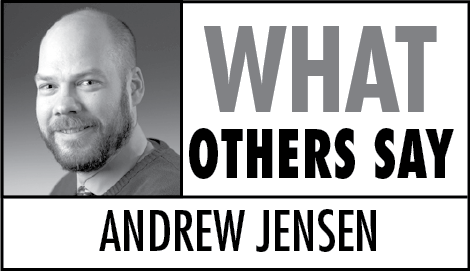With just a couple weeks to go until the next legislative session begins, Alaska’s elected officials have a hefty to-do list. In no particular order, here it is:
• Restructuring the Permanent Fund earnings in order to use a portion to pay for state government, and possibly reducing the annual citizens’ dividend.
• Considering whether to raise or institute new taxes.
• Cutting spending.
• Reaffirming approval for the sale of pension-obligation bonds; and deciding whether to fund the capital budget with general obligation bonds subject to voters’ approval.
• Allocating $15.7 billion in payments-in-lieu-of taxes, or PILT, between the state and municipalities for the Alaska LNG Project.
• Reforming the oil tax credit program, and possibly raising or hardening the production tax floor.
• Dealing with the Anchorage Legislative Information Office hot potato.
• Funding the expanded class of Medicaid recipients that the House and Senate majorities are currently suing the governor to overturn.
• Approving Alaska LNG Project fiscal terms, commercial agreements and a constitutional amendment securing those terms to be presented to voters in November.
Any one or combination of the above items would bog down a Legislature that has gone down to the last minute or overtime just to pass budgets in healthy fiscal years.
Taken in total mere months from a statewide general election, it would be wildly optimistic to expect a series of profiles in courage to be written from the halls of the Capitol in Juneau.
Both sides are going to have to be realistic. Republicans should know they can’t cut enough, and Democrats should drop their incessant insistence on raising oil taxes. Reforming the credit program or hardening the tax floor is one thing; pretending that there’s some vast supply of money on the Slope that can be tapped at $35 per barrel is not.
Republicans have stated Gov. Bill Walker’s budget doesn’t cut operating spending enough, by only $100 million compared to their desire for a $400 million reduction. If they can cut operating spending by another $300 million compared to Walker’s budget, it would eliminate the need for $200 million in revenue from a state income tax.
Whether they have a plan or the wherewithal to execute such a reduction remains to be seen.
If the Republicans can’t propose a budget that balances, or choose to move some of the Constitutional Budget Reserve into the Permanent Fund Earnings Reserve as part of the restructuring to fund government, then the House minority Independent Democrat caucus will still have the same leverage it exerted last session to protect its members’ funding priorities such as education or Medicaid expansion.
Senate President Kevin Meyer, R-Anchorage, has said some in the majorities could be comfortable with a budget that doesn’t fully close the $3.5 billion gap, which could be a preferable compromise between not slashing state spending to the bone while reducing the annual draw from the CBR to a much smaller level.
With a 15-5 advantage in the Senate, Meyer can pass such a plan without Democrats; such is not the case in the House.
If the Republicans don’t want to raise or create taxes to fully close the deficit, the House majority is going to have to work far more constructively with the minority than it did last year when, at an impasse, the leadership proposed to transfer the entire Earnings Reserve into the Permanent Fund to eliminate the requirement for a three-quarters vote to pull from the CBR.
Democrats are correct to be concerned that new taxes, higher taxes and a reduced dividend will impact low income Alaskans disproportionately. Taken in total, Walker’s fiscal plan would remove some $1.15 billion — $500 million in taxes, $650 million from the dividend payout — from the private economy to help fund government.
But funding government is also a Democrat priority, and they’re not going to be able to have it both ways.
Republicans are also correct that taking money out of the private sector and disrupting the oil tax system for the fifth time in 10 years is likely to chill investment and economic output at a time when state government can least afford it.
None of the options are good, but legislators will have to remember what Hyman Roth said in The Godfather Part II: “This is the business we’ve chosen.”
If they’re not ready to make the hard choices and compromise, the voters should send them into another line of work.
Andrew Jensen is the managing editor of the Alaska Journal of Commerce. He can be reached at andrew.jensen@alaskajournal.com.


